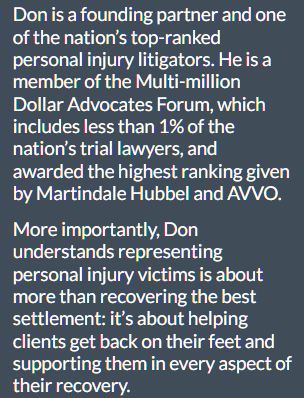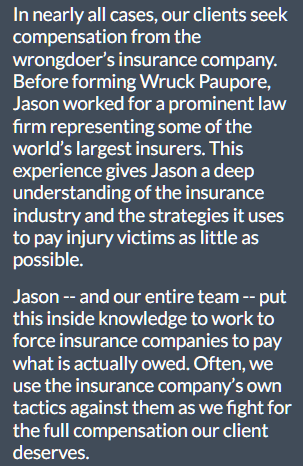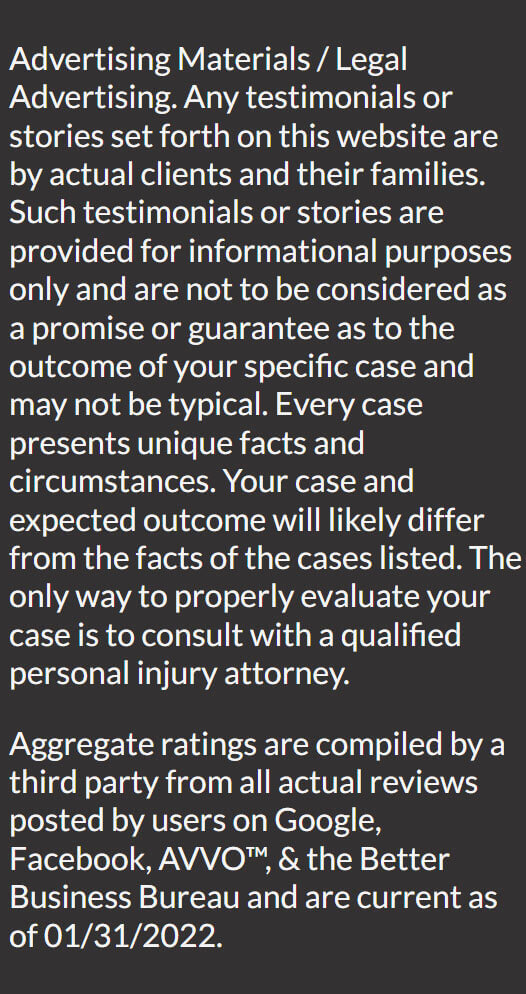



Nursing homes are meant to help those older or in poor health who cannot live independently. Unfortunately, the people who live in nursing homes are often very vulnerable, and abuse has been known to occur. If you suspect your loved one in a nursing home has been or is being abused, contact the police and call a lawyer to discuss how your loved one may get fair compensation.
Abuse in nursing homes might take a variety of forms, and knowing how to spot the symptoms of abuse is crucial. Your loved one might experience physical, emotional, or even financial abuse by others within the nursing home. Once you discover the abuse, contact an attorney and act fast, as you have only 2 years to file a civil claim for damages. Damages available in these kinds of cases often involve significant economic and non-economic damages, and a lot of compensation might be at stake. Once you know that abuse has occurred, report it to the police so they can investigate and possibly arrest abusers. Meanwhile, document whatever evidence you can and call a lawyer.
Call Wruck Paupore at (219) 322-1166 and ask our nursing home abuse lawyers for a confidential case evaluation for no charge.
Knowing the signs of abuse is the first step toward stopping it. People sometimes hesitate to report suspected abuse because they are afraid of what might happen if they are wrong. If you believe any of the below situations or scenarios apply to your case, contact the authorities and speak to an attorney about suing the nursing home.
A tell-tale sign of physical abuse is injuries. If you visit your loved one and notice new injuries that nobody can explain, you should have your loved one evaluated by a doctor. In many cases, when a nursing home resident is injured from abuse, doctors uncover older injuries from the abuse that were never reported. Abusers often try to cover up their actions by hiding injuries and keeping them hidden. Meanwhile, victims continue to suffer, and their health may deteriorate because their injuries are not being properly treated. Our nursing home abuse lawyers will help you keep track of all your loved one’s injuries, new and old, to make sure they get the most compensation possible.
Even if you do not notice injuries like bruises or broken bones, you might notice an overall decline in your loved one’s health. For example, if an abusive staff member is tampering with your loved one’s medication or even withholding medication, your loved one’s health may decline over time. Again, have your loved one evaluated by a doctor if you suspect abuse.
Abuse does not always take a physical toll on victims. In many cases, abuse is psychological or emotional rather than physical. As such, the signs of abuse may differ significantly. One common sign of emotional abuse is a change in personality. If you notice your loved one has experienced a sudden change in personality or demeanor, you should ask them about potential abuse. Victims often become irritable, despondent, depressed, or afraid. They might refuse to participate in things they used to enjoy or develop psychological conditions like PTSD.
Another form of abuse that is often overlooked is financial abuse. People who live in nursing homes might not have the mental faculties to maintain their own finances, and an abuser might easily convince them to give them money. Victims often lose their life savings to abusers who financially exploit them. Family members might not realize what is happening until the money is gone. If you notice any significant changes in your loved one’s financial situation, contact a lawyer for help immediately.
Once you discover that your loved one has been the victim of abuse, contact an attorney and discuss taking legal action quickly. You might only have so much time to file a case, and the clock might already be ticking. The statute of limitations under I.C. § 34-11-2-4(a) gives plaintiffs with personal injury claims only 2 years to file their claims in civil court. The limitation period typically begins from the date of the most recent abuse, which might not be easily calculated.
If time is running out, ask your lawyer whether you can have the statute of limitations tolled. Tolling allows plaintiffs to pause the clock on their limitation period, but only under certain circumstances. According to § 34-11-6-1, tolling is possible in cases where the plaintiff has a legal disability, which may consist of mental or psychological conditions that prevent the plaintiff from understanding their rights or pursuing legal action on their own. Since many people living in nursing homes live with cognitive impairments or memory issues, this is a common issue in nursing home abuse cases. Under the law, the limitation period may be tolled until the plaintiff’s disability is removed.
If you believe your family member or loved one is being abused while living in a nursing home, there are steps you can take to help their case and hopefully get compensation for their injuries. First, report the abuse to the police. Abuse is often a criminal offense, and the police may launch an investigation and turn up evidence that can be used to convict the abuser. We might also use this evidence in our civil claim.
Next, get your loved one medical attention immediately. Seek help from a doctor who has nothing to do with the nursing home. A doctor may uncover new and old injuries that were caused by the abuse. The doctor might even be able to testify in court about whether the injuries are consistent with abuse.
If possible, try to document any injuries you know of. If you visit your loved one and discover their arm is broken or they have a bad cut on their leg or a nasty bruise on their face, take photos and get them to a hospital. Your photos may be useful evidence in our case against the abuser and the nursing home.
Call Wruck Paupore at (219) 322-1166 and ask our nursing home abuse lawyers for a confidential case evaluation for no charge.
Don is a founding partner and one of the nation’s top-ranked personal injury litigators. He is a member of the Multi-million Dollar Advocates Forum, which includes less than 1% of the nation’s trial lawyers, and awarded the highest ranking given by Martindale Hubbel and AVVO.
More importantly, Don understands representing personal injury victims is about more than recovering the best settlement: it’s about helping clients get back on their feet and supporting them in every aspect of their recovery.

In nearly all cases, our clients seek compensation from the wrongdoer’s insurance company. Before forming Wruck Paupore, Jason worked for a prominent law firm representing some of the world’s largest insurers. This experience gives Jason a deep understanding of the insurance industry and the strategies it uses to pay injury victims as little as possible.
Jason -- and our entire team -- put this inside knowledge to work to force insurance companies to pay what is actually owed. Often, we use the insurance company’s own tactics against them as we fight for the full compensation our client deserves.

For more than four decades, Keith has been fighting for injury victims. During that time, he’s watched the insurance industry change, with insurers now more interested in protecting their stock price than treating injury victims fairly.
Since the beginning, Keith has put people first. From his childhood in Gary, Indiana during the 1960’s and working his way through law school, Keith has risen to become one of the Midwest’s most respected trial lawyers. He has never forgotten that being a lawyer is about helping people -- and seeing injury victims through struggles in a way that could change their lives forever.
Over the decades, Keith, Don and Jason have fought relentlessly for clients, even when other lawyers have said the case was impossible to win.


© 2025
Terms of Service | Privacy Policy | Resources | Blog | Sitemap

© 2022 Wruck Paupore PC
Terms of Service | Privacy Policy